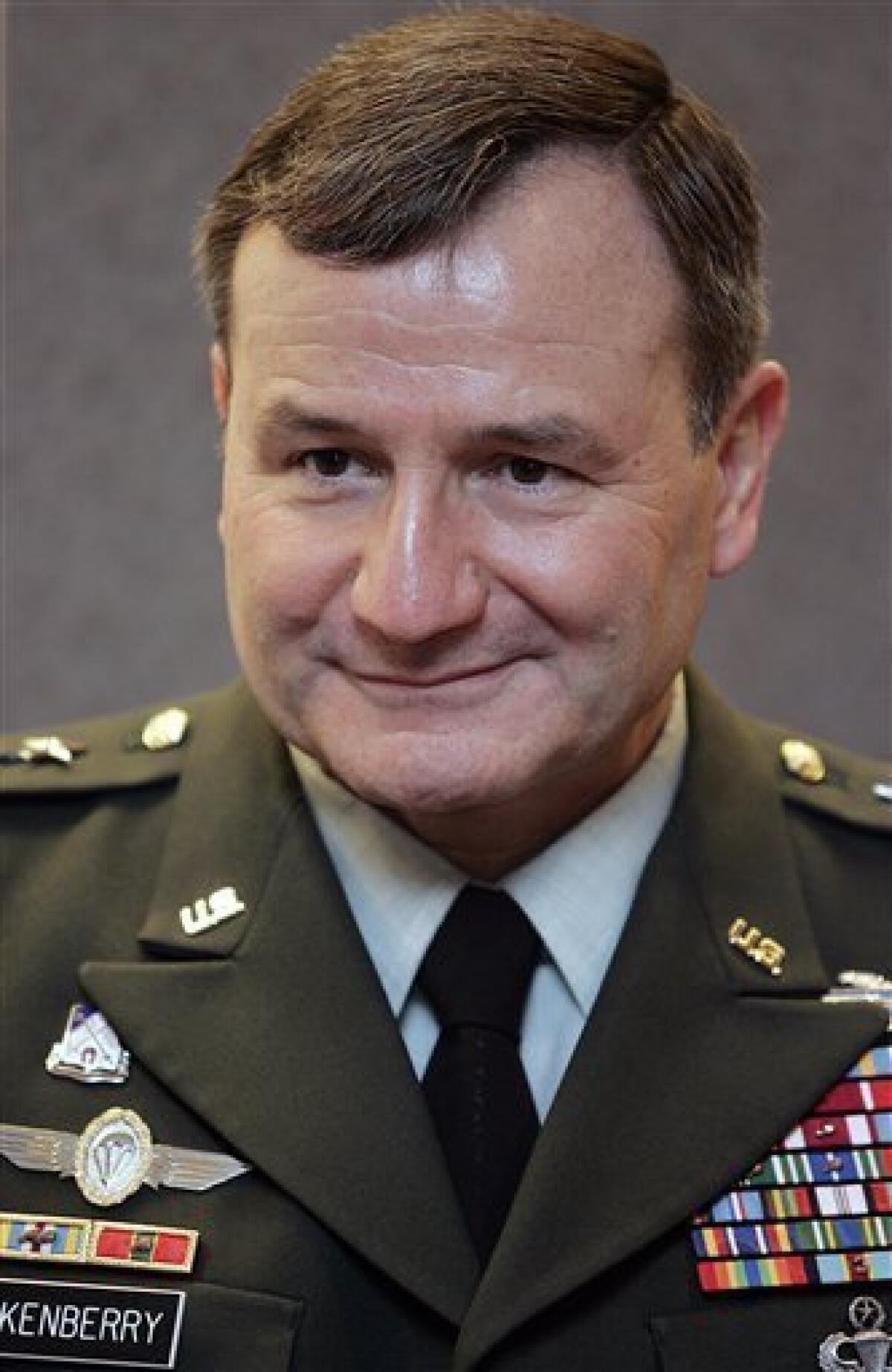Envoy choice would shed his three stars in Kabul

Here’s something unusual about President Barack Obama’s choice of Karl Eikenberry to be the top U.S. civilian official in Afghanistan: He’s a three-star Army general.
Eikenberry, a West Point graduate with a wide range of military experience, was appearing Thursday before the Senate Foreign Relations Committee for a confirmation hearing expected to raise no substantial obstacles to him becoming the next U.S. ambassador in Kabul. He would succeed William B. Wood, a career diplomat who has headed the U.S. Embassy there since April 2007.
If confirmed for the post, Eikenberry has said he would retire from the Army.
The Eikenberry appointment is part of set of sweeping changes Obama is planning for the U.S. and allied mission in Afghanistan. The war effort has bogged down to the point where commanders say they are stalemated in the southern part of the country with insurgents led by the radical Taliban movement.
Sen. John Kerry, D-Mass., chairman of the Foreign Relations Committee, said Wednesday he sees Eikenberry as an astute choice as chief U.S. diplomat in Kabul in a period of growing worry about the war’s direction.
“At such a time, Karl Eikenberry brings exceptionally valuable skills to the table,” Kerry said. “After two much-lauded tours of duty there, he knows the military side of the equation as well as anyone can. In his new civilian capacity, he is uniquely placed to get the civil-military balance right.”
Eikenberry has previous experience in the political-military arena. He served as the U.S. defense attache in Beijing, and he did a stint in Hawaii as director for strategic planning for the U.S. Pacific Command.
Fluent in Chinese, Eikenberry also is a scholar of Chinese history, including ancient Chinese military history. He has two master’s degrees – one in East Asian studies from Harvard and another in political science from Stanford.
John Naland, president of the American Foreign Service Association, a professional organization of retired and active members of the U.S. foreign service, said he knew of no other case of an active-duty general or admiral being nominated for an ambassadorship. Joseph Prueher, a retired four-star admiral, had left the Navy several months before he became U.S. ambassador to China in November 1999. Another retired Navy admiral, William Crowe, served as ambassador to Britain during the Clinton administration.
Eikenberry has served since 2007 as deputy chairman of NATO’s military committee in Brussels. Before that he was the top American commander in Afghanistan for two years – his second tour of duty there. He previously was chief of military cooperation, with responsibility for developing Afghan security forces.
Stephen Biddle, a defense specialist at the Council on Foreign Relations and a recent visitor to Afghanistan, said in a telephone interview that there would appear to be reason for concern about possible friction between Eikenberry and the current top U.S. commander there, Gen. David McKiernan.
“Given that most people think the situation in Afghanistan has been getting worse, and that policies are going to have to change, you just wonder what the chemistry will be between these two guys,” Biddle said.
“I have observed that senior officers in a theater of war are not necessarily a band of brothers,” he added. “Sometimes they get along, sometimes they don’t get along. And this strikes me as a situation in which one might imagine that there would be more than the usual amount of potential for an awkward relationship unless they just know each other and like each other and hit it off.”
–––
On the Net:
Eikenberry biography: https://www.nato.int/cv/dmilcom/eikenberry.html